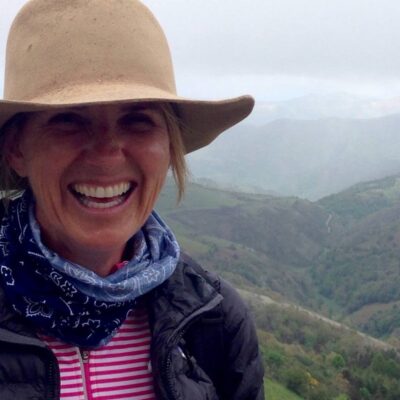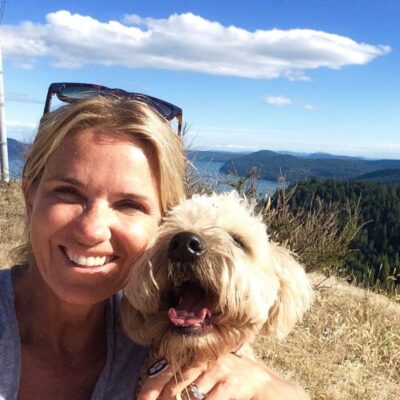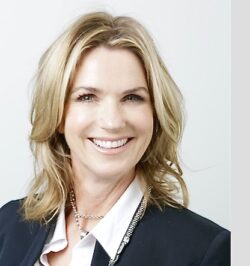Letters from the Pandemic 30: Losses and Gains
The Art of Losing: Loss and Gain During a Pandemic
by Elaine Williamson
Then practice losing farther, losing faster: places, and names, and where it was you meant to travel. None of these will bring disaster. — Elizabeth Bishop
*

When my daughters started their final year of high school and university in the fall of 2019, I could not have imagined a virus was forming. Like many things to be lost and gained in 2020, knowledge rested in dormancy until a Google search offered a different sort of viral outbreak on my screen. An outbreak of words. Statistics. Warnings.
The concept of lost things is a great conversation starter during a pandemic. The list opens naturally with each conversation: I lost a graduation ceremony. I lost a vacation. I lost a job. I lost a loved one. I’ve learned that as I lose items, celebrations and conversations, I find things. I find a different sense of my family. I find a different understanding of these twenty-something women, with their glossy hair and clever social media banter, since they last lived at home. I find intelligent, resilient adults. I’ve learned about what I value when there are losses.
I started my Covid journal by dividing the first page into two: Things I’ve Lost, Things I’ve Gained. Somehow, listing it this way made it seem more balanced. Less hopeless. Less filled with despair. I expected the Things I’ve Lost side to dominate in the same way the virus dominates: taking without asking. My lists from the first few months started with the tangible: “I’ve lost being the only person using my car, “I’ve lost taking my daughter prom dress shopping,” “I’ve gained a pantry overflowing with beans,” “I’ve gained a collection of elastic waist pants.” I notice, however, as the year progressed, my entries became more nuanced: “I’ve gained newfound patience.” “I’ve gained empathy for a new grad searching for a career during a pandemic,” “I’ve lost the desire to clean up the kitchen five times a day.” As I reread my gains and losses, it is harder to differentiate between the positive and the negative, the true losses, the true gains. Like the virus.
My list gives me power and agency. It helps me navigate this extraordinary march of history. My adult children expect me to understand loss, to explain it so the monster under the bed becomes smaller. For my daughters to know the magnitude of this type of loss, my own becomes larger. Common wisdom commands me to preserve and honour history. How should I honour the histories I’ve missed? The histories my family has missed.
Three months into quarantine, we didn’t know the full measure of what we had lost. Would lose. The outbreak of warning and statistics erupted into a steady stream of new terms: pandemic, asymptomatic, contact tracing. Fatality rate. Like a virus spread by a sneeze or handshake, we became infected with frustration, despair, anger. A virus is not selective. It strikes indiscriminately. How would it strike us? As the economy collapsed and businesses failed, our losses became easier to envision. As the virus spread father and faster, to our community, our yoga studio, our island home, our friend’s coffee shop, our neighbourhood grocery store, our losses became more personal. It was easier to imagine the year we were not going to have, to see the missing things. It was difficult to find gains when so many were losing.
“I did not lose my graduation. Covid stole it from me while I wrote exams and applications.” I was schooled by an insistent teen.
Should I have schooled her back? Offered a philosophical interpretation of chaos beyond her comprehension and maturity? She’s barely 17. I can’t tell her it’s not so bad, that her losses are not a big deal. I can’t tell her that there will be other first proms, other bleary all-nighters, other joyous last days-of-school. Those pages have been ripped from this chapter. The narrative of our lives has been disrupted. When we lose our celebrations, we miss the chapter breaks that separate one stage from another. This chapter has Covid-19 scrawled in ugly black letters. Control, predictability, sureness: the pace of Things I’ve Lost gains momentum.
The losses mount: J Crew declares bankruptcy. I’ll miss Michelle Obama as its brand ambassador. Aldo, trendy shoes and pleasant afternoons spent window shopping, are bankrupted by a microbe. I’ll miss the ping in my inbox signaling a new drop. Cirque Du Soleil. Perdu. Memories of family milestones celebrated under the red and white turrets of the main tent. What will be next? Neighbourhood restaurants? Tick. Paying with cash? Tick. We mourn what we have lost. Tangible losses mutate to more nuanced losses. Cancelled visits, limits on gatherings, fizzling friendships. We practice losing. Get faster.
The months pass. The losses accumulate. Transform and multiply. We worry that we are the only ones not invited to a Zoom cocktail party. Why weren’t we chosen to be in the “group of six” gathering on the weekend? We spend hours badly, in flustered searches for the things we are missing. We stop greeting our friends with a hug. Eye strangers suspiciously in the grocery store. Worry that an errant sneeze, cough, orange peel could render this defiant sickness a new member of our household. We wipe down fruit. Hoard antiseptic wipes. Snatch what we can from emptying shelves. Flattening the curve and social distancing become our new practice. The mass of information streaming past us is vast. We drown in our ever-expanding Covid-vocabulary: super-spreader, PPE, quarantine. I add them all. Things I’ve Gained.

We are fortunate to be safe at home, all six of us plus an energetic dog. We find ourselves struggling to create routines to stay healthy and focused during this housebound, family-bound, dog-walking limbo. We argue. Adults jostling for space, emotional and physical. Space to grieve the missing things. We clash as we establish, and re-establish, our grown-up independence. They’ve lived in dorms, shared houses, highrises, big-city condos, in the time in between. I’ve lived without their commotion, shoebox fairy houses and closets overflowing with sports-gear. The hole they left behind was enormous, a loss from a different history. A new history I had to learn to live. Covid feels like a hostile hostess teaching us to know each other again. Things I’ve Lost. Things I’ve Gained. The columns grow.
Trying to spark joy in my journal I find myself digging into the old sticker collection in the forgotten art-drawer. I’m grateful for having saved these remnants of our younger selves. I lose an hour wandering down memory lane, reminiscences of rainy afternoons, end-of-school celebrations, never-ending car trips. An hour lost or gained? An answer transformed, like a virus.
Days bend into weeks. Weeks bleed into months. We turn the corner to a year. Have we lost a year or gained a year? It grows more difficult to decide which column of my journal should hold each new entry. What was once distinctly a loss has become murkier, less unpleasant. Somedays, the missing things slide away unnoticed.
What am I hoping will come after this period of losses and gains? What should I change about how I lived my old life? Is it possible to emerge stronger, simpler, more grateful for what we didn’t lose? What narrative will we tell when it’s over? When we arrive back at “normal.” It gets to be a sort of game: what will be missing when we look back?
We gain a new appreciation of the telephone, calling friends on the landline. We climb on rusted bikes, forgotten in the garage until a pandemic pushed us outside. We blanket the kitchen in flour and sugar, endless trays of cookies cooling on the counter. We walk the dog multiple times a day, sometimes alone, more often in pairs. We are charmed to see the cherry blossoms again. We seek out the hammock, idling away hot summer afternoons. We pass books amongst ourselves, recommending and discussing. We are surprised to find ourselves in the same house, in the same city, at the same time. This virus which has taken so much, offers connection. We are startled to find space for the new.
Our appreciation for the mundane things we used to take for granted has changed. It doesn’t take as much to make a day feel special. Curbside pickup. A restocked fridge. Takeout instead of homemade. Flurries of snow in April. Instead of a year erased, could we imagine it as one of discovery and transition? Reinterpret our Covid-history as less hostile, more beautiful?
My journal fills up: Things I’ve Lost, Things I’ve Gained. Entries scratched and reassigned to the other column. Gaps that resembled a mouth of lost teeth are now filled in: Things I’ve Gained. The tangibles have transformed once more. Gratitude. Fresh admiration for the brilliant, resilient, twenty-somethings. A shift from coveting the monumental to cherishing the mundane. As I close its cover and turn out the lights on another day, I consider what I’ve learned about the art of losing: it wasn’t too hard to master.
*

Elaine Williamson is an Adjunct Professor at the Sauder School of Business at UBC where she teaches marketing and works with organizations to accelerate leadership performance. She maintains a strong commitment as a community leader, with over 20 years of experience on the Board of Directors of Vancouver of not-for-profit organizations. Elaine lives in Vancouver with her husband, four brilliant, resilient daughters and her energetic dog, Archie.
*
The Ormsby Review. More Books. More Reviews. More Often.
Publisher and Editor: Richard Mackie
The Ormsby Review is a journal service for in-depth coverage of B.C. books and authors. The Advisory Board consists of Jean Barman, Wade Davis, Robin Fisher, Cole Harris, Hugh Johnston, Patricia Roy, David Stouck, Maria Tippett, and Graeme Wynn. Scholarly Patron: SFU Graduate Liberal Studies. Honorary Patron: Yosef Wosk. Provincial Government Patron since September 2018: Creative BC
“Only connect.” – E.M. Forster